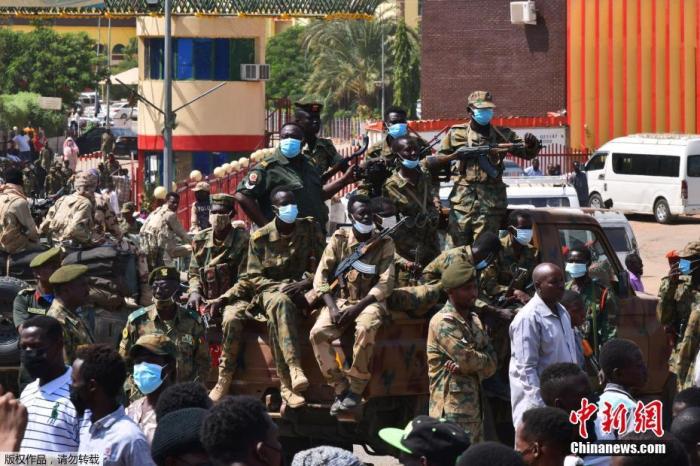Chinanews, October 27th, 25th, the situation in Sudan has undergone a sudden change.
The Sudanese military said on the 26th that it will form a new civilian government to manage the country.
According to the Chinese website of Al Jazeera TV in Qatar, the Biden administration of the United States is expected to respond to the situation in Sudan with traditional criticism, cessation of assistance, and threats of imposing sanctions on some Sudanese military officials.
But many commentators do not believe that Washington can change the balance of real power in Sudan.
Data map: US President Biden.
On October 25, local time, the situation in Sudan suddenly changed. The Prime Minister of the Transitional Government was under "house arrest", the Minister of the Government was arrested by the military, and the country entered a state of emergency.
According to the report, developments in Sudan show that the Biden administration of the United States has only fairly limited options when dealing with this sudden change.
The report said that in the past 30 years, the two sides have not established diplomatic relations, and the United States has not provided Sudan with any defense cooperation or military procurement plans. These have restricted Washington's role in dealing with developments in Sudan.
On October 25, local time, the situation in Sudan suddenly changed. In Omdurman, the Sudanese security forces were on duty in front of the government office building.
Criticism and condemnation go ahead
According to reports, in addition to the official spokespersons of the White House and the State Department, many senior members of the U.S. Congress have issued statements condemning the intervention of the Sudanese military and the implementation of the state of emergency, as well as the arrest of the country’s prime minister and some senior civilian officials. action.
Democratic Senator Robert Menendez, chairman of the Foreign Relations Committee of the U.S. Senate, condemned "Burhan’s actions to dissolve the Sudanese Sovereignty Commission and the Transitional Government, as well as the alleged house arrest of Prime Minister Hamduk and other ministers and civil society leaders. Action.
White House Deputy Spokesperson Karen Jean-Pierre also emphasized that the Biden administration rejected the Sudanese military’s actions in the country and called for the immediate release of the country’s prime minister and other officials under house arrest.
On October 25, local time, the situation in Sudan suddenly changed, and a large number of people took to the streets to protest the military actions.
Is assistance given? Sanctions still come
According to reports, some officials have begun to point out the importance of the assistance provided by the United States to Sudan.
The impact of the aid provided by Washington lies not only in its financial value, but also in the information it sends to other countries and international development and financing organizations such as the World Bank and the International Monetary Fund when dealing with Sudan.
U.S. Senator Chris Kuhns emphasized that if the powers of Prime Minister Hamduk and the transitional government are not restored, then U.S. aid to Sudan will end.
Atlantic Council expert Cameron Hudson predicts that due to the current coup, Sudan will face a more difficult economic period in the future, because "international aid will soon be frozen, including the country’s cooperation with the International Monetary Fund. Organization of negotiations on debt relief issues".
In fact, the US State Department has announced on the evening of the 25th local time that it will stop providing assistance worth 750 million U.S. dollars to Sudan.
On the other hand, US State Department spokesperson Ned Price emphasized that the United States "will not hesitate to hold accountable those who engage in violence in Sudan and deviate the country from the democratic path."
U.S. Senator Menendez said, "The whole world is paying attention, and we cannot stand by and watch the military repression in Sudan."
He also emphasized, “Our partners in the Arab world and elsewhere must urge the Sudanese military to release the prime minister and other government officials and transfer leadership to the civilian government. This is very clear in the provisions of the transitional constitution.”

